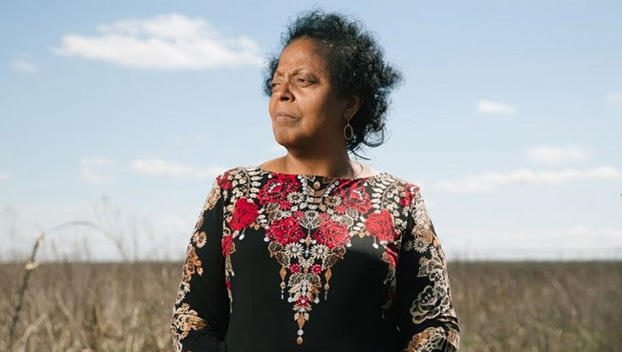In the River Parishes, recovery and resilience go hand in hand this hurricane season
Published 8:48 am Wednesday, July 19, 2023

- (Photograph by Brad Zweerink / Earth Justice) Sharon Lavigne of RISE St. James
|
Getting your Trinity Audio player ready...
|
|
Hurricane Ida had an awful impact. As a result of the damaging storm, communities already burdened by pollution also experienced extended power outages, a major dock was breached by a vessel, and nearly 350 oil spills and gas flares throughout the region allowing the release of chemicals. Fast forward; it’s July in Louisiana, the throes of summer and, so far, we’ve enjoyed Juneteenth and the Fourth of July holidays. But next month is a reminder of a not-so-pleasant day – August 29, 2021 – the day that Hurricane Ida roared through the River Parishes, upending thousands of lives, destroying millions of dollars in property, and bringing life to a screeching halt as many of us knew it. Fast forward and we are still in recovery mode, and life is different and difficult for many of us. But with recovery comes resilience and here we are, again, facing another active peak hurricane season. As storms continue to increase in strength and frequency, here are a few tips to ensure that you and your family are hurricane ready. 1. Determine your risk – Know what’s coming, how it can affect you and how to handle it. Monitor the news/weather to get a full picture of what is forecast. 2. Identify resources – Find out what assistance is available to you via local, state and federal government. Once you assess your risk, detail all agencies programs that may apply to you and your needs. 3. Have a plan – Identify a safe place for your family outside of a storm surge evacuation zone. Put it in writing, so that family members will have the plan in hand. Include your pets in your plan. Assign individuals to any elderly and infirmed family members. NO PERSON LEFT BEHIND! 4. Know your zone – Find out if you live in a storm surge evacuation zone. Pay close attention to local officials and emergency managers to know of any evacuation plans and routes. 5. Know your coverage – Double-check your insurance to make sure you have the coverage you may need for repairs. Be sure to take any important insurance papers with you in case of evacuation or possible flooding. 6. Strengthen your home – It is not recommended you stay, particularly for the elderly and infirmed, but if you plan to ride out a storm, make sure your home is in good repair and up to local hurricane building code specifications. Have the proper plywood, steel or aluminum panels to board up windows and doors. 7. Buy proper supplies ahead of time – Stock up on batteries (for flashlights and radios), water, non-perishable foods, and any medications/refills needed. Have enough for at least two weeks. Fully charge all devices, i.e., mobile phones, tablets, and laptops in case of a power outage. If using a generator, get enough gas for at least a week. 8. Keep your family safe – Locate a safe room or the safest areas in your home for each hurricane hazard, for example, an interior closet or a bathroom with no windows. If you must evacuate, have face masks for everyone as you may end up in a shelter which could put you at risk for COVID, etc. 9. Take First Aid, CPR, or disaster preparedness classes – Taking these classes can make all the difference when the next disaster strikes. 10. Download the FEMA mobile app – In case you missed anything above, it’s a good idea to have the most current information at your fingertips. Lastly, remember, it’s better to have and not need than to need and not have. |
|
|
|
RISE St. James can be reached at info@risestjames.org.




